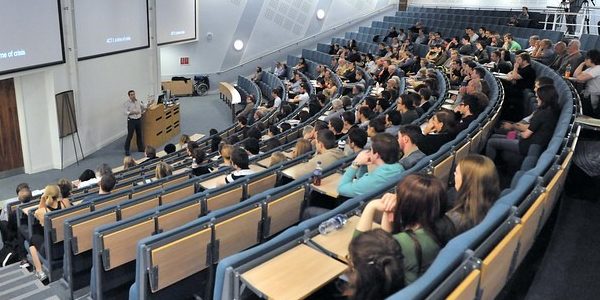Quality of higher education compromised by marketing costs, says NUS president
A fall in the quality of education at universities has come at the expense of increased spending in marketing, says Zamzam Ibrahim, the newly elected president of the National Union of Students (NUS).
Determined to pay “the bottom dollar” following the removal of the student numbers cap, Ms Ibrahim warned of academics teaching classes of more than 150 students, who cover tuition fee costs of up to £9,250 a year.
Ms Ibrahim espoused that the “marketisation of education” has redirected the attention of universities towards making sure students feel their offers are “more attractive”, in the interest of universities remaining competitive.
“The priority that should always be students, is moving towards making money,” she stated.
“That is what happens when you marketise education and when your main focus is the bottom dollar and by that we are corrupting our education system. I think it is incredibly worrying.”
Eleanor Busby from The Independent said: “Competition between institutions to recruit students to courses has intensified as there are fewer 18-year-olds in the population and yet student numbers at universities remain uncapped.
“This means more popular universities are taking higher numbers of students, while other institutions are struggling to fill their courses and generate enough income to be sustainable.”
GSM London, one of the largest higher education providers in the UK, has announced that it has gone into administration due to an inability to “recruit and retain sufficient numbers of students”.
The provider told its 3,500 students studying undergraduate and postgraduate business courses in Greenwich and Greenford that all tuition, classes and exams would stop at the end of September.
That is what happens when you marketise education and when your main focus is the bottom dollar and by that we are corrupting our education system
– Zamzam Ibrahim
“One of the most terrifying things is which universities are going to close down next? Because the reality is that most of these institutions are looking at it (and saying) ‘Ok, we have to recruit this many students and we don’t care how we do it or we are going to go under’,” Ms Ibrahim continued.
She elaborated: “Academics are under more pressure and are having to cover more lectures than they would on a normal day…If my academic is (…) incredibly stressed then my quality of education goes down.
“That is a reality that most institutions are facing because they don’t have the money to be able to keep all the academics they would like.”
The University and College Union’s (UCU) General Secretary Jo Grady stressed that the trade union had “repeatedly highlighted concerns about the marketisation of education and the rapid increase in poorly regulated private providers”.
Responding to Ms Ibrahim’s statements, Universities UK (UUK) said there is a growing need for “sustainable funding to ensure students receive the high-quality university experience they rightly expect” is much needed.
“Universities are operating in a challenging environment with increased competition, undergraduate tuition fees frozen and immigration rule changes impacting their ability to attract international students,” they added.
A Department of Education (DfE) spokesperson said: “We are working closely with the provider and all relevant sector bodies to ensure the students affected are given the support and advice they need to continue their studies.”

Comments